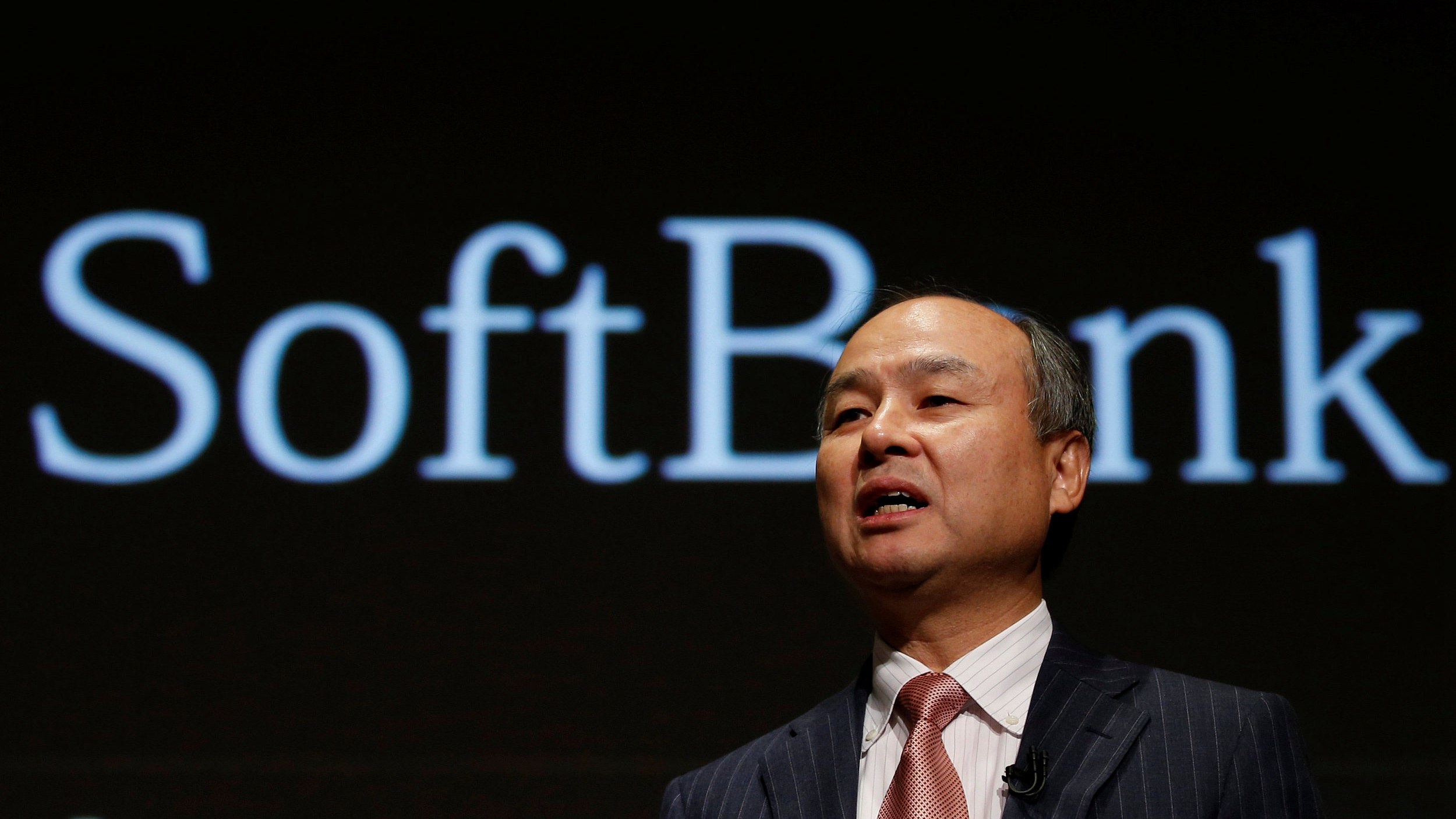
Business
11:05, 30-Nov-2018
Japan brokers readying for new client surge ahead of SoftBank's mammoth IPO
Updated
10:28, 03-Dec-2018
CGTN

Japan's stockbrokers are rubbing their hands ahead of SoftBank's record-breaking 21 billion U.S. dollar share sale, banking on the telco's brand power and unprecedented marketing campaign to boost business in a country replete with IPO-hungry investors.
The deal's lead underwriters, including Nomura Holdings Inc., Daiwa Securities Group Inc and SMBC Nikko Securities Inc. have together launched what is widely believed to be Japan's first TV ads for a private company's initial public offering (IPO).
The adverts joke how everyone, from breakfasting families to a humanoid future-predicting plant, is talking about the IPO – the country's largest-ever, and the world's biggest since 2014.
“When we talk about IPOs, individuals are the main providers of risk money,” said one IPO banker at a major brokerage. “In Japan, institutional investors are too risk-averse.”
The sale, with orders beginning on December 3, comes as brokers work to attract new household money and increase customer assets to bump up management fees. The effort is aimed at reviving earnings as regulators discourage brokers from promoting the frequent buying and selling of stocks to generate fees.
Quick profit
SoftBank Group Corp's IPO of its domestic mobile phone network business, SoftBank Corp, will see at least 80 percent of shares on sale offered to domestic retail investors – a figure typical for a Japanese IPO, and in contrast to the United States where 10 to 20 percent is the norm.
The firm will publish an indicative price range on Friday.
As well as six lead underwriters, a host of smaller brokers are angling to get involved – arranging marketing calls and conducting mailshots – in the hope of welcoming a rush of first-time investors opening accounts in anticipation of the IPO.
Okasan Online Securities has seen a two-to-three-fold jump in the number of accounts created in recent weeks versus the year's average, many by people wanting SoftBank IPO shares.
“We are getting good customer feedback,” said Okasan Managing Director Hirofumi Inada. “The number of inquiries are on the rise.”
While Japanese households tend to be viewed as conservative – holding over half of the country's 16.11 trillion U.S. dollars worth of private wealth in cash and short-term deposits versus just 13 percent in the U.S. – individual investors in recent years have increasingly viewed IPOs as a guaranteed route to quick profit.
According to stock exchange data, the number of individual investors rose by a record 3.62 million in 2015, the year of Japan Post's 11.9 billion U.S. dollar IPO.
The paucity of deals in Japan also raises interest in each IPO. Public floats in Tokyo have raised 2.24 billion U.S. dollars so far this year, showed data from Dealogic, compared with 30.6 billion U.S. dollars in Hong Kong.
Nomura, Daiwa and SMBC Nikko declined to comment, as did fellow lead underwriters Mizuho Securities Co Ltd, Mitsubishi UFJ Morgan Stanley Securities Co Ltd and SBI Securities Co Ltd. Bankers interviewed declined to be identified as they were not authorized to discuss the matter publicly.
SoftBank & Son
Aiding efforts to sign up investors is the brand recognition of SoftBank, which runs Japan's third-biggest mobile network with 40 million subscribers, plus the cult-like popularity of Masayoshi Son, its billionaire founder and chief executive.
A figure not afraid to clash with the establishment – a rarity in Japan – Son is often seen as a visionary, hosting annual SoftBank World events showcasing cutting-edge technology, and as the person who brought Apple Inc's iPhone to Japan with a years-long SoftBank exclusivity deal.
“I think there are retail investors who buy SoftBank because they like Son,” said independent consultant and former IPO banker Hirofumi Tanaka.
Another selling point is the promise of high dividends – 85 percent of SoftBank Corp profit, far higher than rival mobile carriers NTT Docomo Inc and KDDI Corp.
“SoftBank Corp is likely to keep its dividend high, since its parent SoftBank Group needs money for its Vision Fund from it through dividend payouts,” said a senior official at a major broker.
SoftBank Group's near 100 billion U.S. dollar Vision Fund is almost half financed by Saudi Arabia.
The group's shares plunged but have since recovered some ground.
Source(s): Reuters

SITEMAP
Copyright © 2018 CGTN. Beijing ICP prepared NO.16065310-3
Copyright © 2018 CGTN. Beijing ICP prepared NO.16065310-3